- Home
- Donald Hamilton
Murder Twice Told
Murder Twice Told Read online
Donald Hamilton
Murder Twice Told
TABLE OF CONTENTS
DEADFALL (Collier's Magazine, 1949)
THE BLACK CROSS (The American Magazine, 1947)
DEADFALL
I
Two men were waiting in the alcove outside the main office when Paul Weston came to work that morning. They had the briefcases and the neat, brushed, shave-shine-haircut-and-the-works look of salesmen, and he paid them no particular attention as he went past them and up the stairs. He had nothing against salesmen as long as they stayed out of the laboratory. He did not think of them again until an hour later, when Dr. Lowery, the chief chemist, came into the balance room where he was weighing out samples for analysis.
“Wes,” Dr. Lowery said, beckoning, and abruptly Weston realized who the men must have been. There was only one thing Doc would take him aside to tell him with just that expression on his good-natured, aging face.
He put the weights back into the box at his elbow, closed the box, and closed the glass front of the analytical balance. Dr. Lowery waited for him outside the door.
“Mr. French wants you in his office, boy. Better put your coat on.”
Weston saw the sympathy in the older man’s eyes; and he did not have to ask the question and have it answered. He nodded, put his notebook away in his desk, and turned away, pulling off his acid-stained laboratory coat as he went into the locker room, which also served as reading room and reference library for the laboratory personnel.
The girl outside Mr. French’s office downstairs said to go right in. Inside, Mr. French was waiting behind the big executive’s desk. There was no friendliness or sympathy in his curt greeting. He did not ask Weston to sit down. The two men Weston had seen earlier were sitting side by side on the maroon leather sofa under the photomural that showed the building in which they were, as it had looked when the sign ACME PETROLEUM CORPORATION across the front was bright and new.
As the door closed automatically behind him, shutting out the sound of the typewriters in the outer office, Weston became vaguely aware of the steady vibration caused by the paddles turning in one of the big mixing kettles down in the plant; and he remembered that he was supposed to be there when they shot the steam to it to bring the temperature up: nobody in the plant seemed capable of learning to read a thermometer. But the attitude of the heavy, well-dressed man behind the desk told him that it was not going to be any of Paul Weston’s business if this or any subsequent mix got overheated.
Weston looked away from Mr. French to the two men on the sofa, regarding them with some curiosity. They always had the same look—when you looked closely—of trained competence. He had missed it this morning only because, after two years, he had no longer been watching for it. He wondered what happened if you kicked one in the face. Alcatraz, probably.
You would think there would be some kind of a statute of limitations on damn-foolishness, he thought bitterly. You would think that six desperate months of trying to find another job after being discharged from a government laboratory for keeping the wrong company, and a year and a half of hard work at the one he finally did land, would entitle a man to the right to kick himself in private for being a sucker for a girl with red-gold hair… The men began to ask their questions. He said he had no idea where Marilyn George was. He said he had not seen her, or heard from her, since the day she had vanished, two years before, in Washington, D.C. He said he had no reason to think she was here in Chicago. Nobody in the room, he could see, believed him.
Then Mr. French took over, clearing his throat and saying heavily that he wanted to be fair; if there were any mistake here, he wanted to know about it. Otherwise, Weston could understand that the company would not be needing his services after today.
“But I didn’t know—”
He checked himself. Mr. French did not have a romantic nature. No reason you could offer, for having, even unknowingly, associated with the wrong kind of people, would be good enough for Mr. French. There were plenty of eager, stainless young chemists to be hired; there was no need for anybody to risk employing one who’d played around with a girl now wanted by the F.B.I. Mr. French clearly felt that there was no percentage in having people around who had been exposed to smallpox, leprosy, or sedition, even if they showed no immediate signs of breaking out in spots…
Upstairs again, he found the door to the chief chemist’s office open, and walked in. Jane Collis, Doc’s secretary, was standing by the desk. Weston looked at her a little blankly, as if he had never seen her before: a small girl with medium-to-dark brown hair, a nice mouth, and glasses which she wore without apology so that after a while you forgot about them until she reminded you by having to wipe them, laughing, after you had kissed her. Well, it was tough about that, he thought.
A shiny quart sample can was her immediate reason for being there—Doc liked to pass on all customer’s samples before Janie typed up the labels—but from the way the two of them had looked up when he entered, Weston knew they had been talking about him, waiting for him to return. He had told Dr. Lowery the truth when he applied for the job here, and Janie after he had started seeing her, off and on, in the evenings; long before he had bought her the ring that she was still not wearing by the terms of the agreement between them. The secrecy had been his condition, not hers. He was glad of it; it made him all square here if he could keep them from going out on a limb for him now.
Feeling their eyes on him, he grimaced and made a gesture as of a knife across his throat. You had to take these things with an air. A sense of humor was supposed to help.
“Oh, no!” Jane said softly.
Dr. Lowery asked, “Did French—?”
“My services are no longer required.”
“I’ll talk to him, Wes,” the older man said. “For one thing, I’m supposed to do the hiring and firing up here in the laboratory—”
Weston said, “Never mind, Doc.”
There was a short silence. Then Jane asked, “But what did those men want, anyway? Why can’t they leave you alone?”
Weston shrugged. “I don’t know. Routine check-up, I suppose.”
“After two years?” Dr. Lowery frowned. “It seems a little unreasonable. You haven’t… done anything that might…?” He broke off, rather embarrassed.
“I haven’t seen her or heard from her,” Weston said, grinning abruptly as he understood what the older man was driving at. “Honest, Doc. I’ve been good; that’s what hurts.”
Dr. Lowery said, “I wasn’t doubting you, boy. I mean, she might have tried to get in touch with you, or written you; that wouldn’t be your fault. I just want to know the exact situation, so I know what to tell French when I see him. Maybe you’d better tell me the whole story from the beginning; I never asked you for the details. Just who was this girl you were mixed up with, anyway?”
Weston glanced at the girl by the desk; it was always a little uncomfortable to discuss one girl in front of another. “I don’t really know,” he said. “She called herself Marilyn George, but I gathered later that wasn’t her real name. She worked in a government office in Washington. One day I had to get some stuff from that office for the lab where I was working, and she happened to be the one who looked it up for me. It was the beginning of a beautiful friendship.” He made a wry face. “I saw quite a bit of her for a while; enough that I had a hell of a time later proving I hadn’t slipped her any confidential information from the lab. I never did prove it; how can you prove a thing like that? They just couldn’t prove I had, so I wasn’t arrested, but of course they fired me on general principles. I had lots of company; apparently she’d had a collection of boy friends in strategic places, and some of them had made substantial contributions. That was proved. Natur
ally they wanted her testimony badly, but she got away from them.”
Jane asked, “But didn’t you suspect—?” and then broke off, coloring a little. They had never talked about it. It was just something he had told her because she had a right to know it; but he had let her know he did not want to talk about it. “I mean,” she said awkwardly, “a person like that…”
“She wasn’t any kind of person you’d think,” he said. “She was just, well, a nice-looking kid with kind of reddish hair. She never asked me to tell her anything. If she had, I’d have told her to go jump in the Potomac.” After a moment he went on, “Of course she had some half-baked political notions, but who the hell worries about… I mean, we didn’t talk politics much.”
The older man suppressed a chuckle. “Well, that’s not important right now,” he reminded them. “Let’s remember that French had a valid point: it doesn’t help the company any for the F.B.I. to be nosing around. But if Wes can show them… You haven’t been associating with anybody else who might have attracted their interest? You haven’t joined any organizations, or gone to any meetings…?”
Weston said, “Damn it, I’ve never joined a political organization in my life, Doc. Before, I was too busy earning my way through college, and then fighting the war after a fashion, to pay any attention to that stuff. And do you think I’d be fool enough now to get near any kind of radical outfit, even if I wanted to, which I don’t? I mean, I hope I have a few brains, even though they don’t always show.” He grinned at them without amusement. “If I’ve been associating with any subversive characters, they’re right here at Acme, Doc.”
“What do you mean?” Dr. Lowery asked sharply, startled.
Weston was taken aback by the realization that, in his position, he could not afford to make such remarks, even jokingly.
“I’m sorry, I was kidding,” he said. “I just meant that everybody I know in Chicago, except for my landlady and a couple of bartenders, is right here in this building.” After a moment, he said, “If nobody minds, I’d like to go look up those bartenders.”
Dr. Lowery said, “Well, maybe it would be a good idea if you took the rest of the day off. I’ll talk to French after lunch.” Then he went on argumentatively, “It isn’t as if he could claim you were dangerous here. Even if you were working with those people, what harm could you do here? We haven’t any secrets that a good chemist couldn’t learn in two days by analyzing stuff he can buy on the market. French certainly can’t think you’re going to set the place on fire or blow it up. When he calms down a little…”
Weston saw Jane Collis’s eyes watching him, waiting to see what he would do. It annoyed him that she did not know that he would not let anybody risk more for him than Doc had already risked by giving him the job here. The trouble was finding a way to say what was necessary without sounding as if he were showing off.
“There’s no sense all of us getting into this mess,” he said. “Thanks a lot anyway, Doc, but let’s just let it ride the way it is… And if he doesn’t know, you don’t have to tell him you were aware of my history when you hired me.”
Then he was out of the office. There was, for a moment, nobody in the laboratory outside and he looked it over with a sentimental feeling that he knew to be ridiculous: he wasn’t that fond of the place. It was merely, probably, the last laboratory he would ever get to work in. The chances of finding another where somebody would give him the break Doc had given him here were infinitely small. Even Doc would probably never have risked taking him on, had it not seemed as if the thing were over and finished. It was one thing to take a chance on a man who had once been in trouble; it was something else again to help somebody who could be expected to keep the place cluttered up with agents of the F.B.I. He stood there for a brief time, slowly letting the full meaning of what had happened take hold of him, like a wounded man painfully visualizing a lifetime on crutches.
Jane Collis had come up beside him. He turned on her. “That goes for you too,” he said.
“What?”
“You didn’t know anything about me. I never told you a thing. Understand?” It was bad enough without anybody else getting dragged into it, particularly her.
The fluorescent ceiling lights flashed across her glasses as she looked up at him. She did not seem to have heard what he said.
“What are you going to do, Wes?” she asked.
“I don’t know,” he said. “Look, listen to what I’m telling you. I don’t want you getting heroic about this, understand? Don’t start shooting off your mouth to prove how loyal you are to me, or French will get the idea he’s got a hornet’s nest up here, and fire the whole outfit. Don’t think he wouldn’t, either. Just sit tight and pretend you never heard of me—”
“Will I see you tonight?” she asked.
“Tonight?” Then he remembered that they had been going to the movies.
He said, “I guess you’d better not count on me, Janie. I don’t know what I’ll be doing.”
“Will getting drunk help anything?” she asked primly.
He grinned at her. “I don’t know. I’ll tell you when I come back for my stuff. So long, now.”
“Wes.” Her voice halted him as he was turning away. “Wes, can’t I come with you?”
He glanced at her over his shoulder, and hesitated. The small girl in the plain skirt and sweater looked back at him steadily, but she was already, he found, a stranger. All he wanted from her now was the assurance that she would not be hurt for having known him. Can’t you understand that it’s over? he asked her silently, suddenly angry with her. Can’t you let me break clean? He could feel it building up inside him like a head of steam. You never got used to having them lower the boom on you; there was always the impulse to strike back at somebody.
He checked himself; after all, it was not Jane Collis’s fault that this had happened. Instead he shook his head and walked away; but at the locker room door he turned to look back at the small, not very striking figure moving slowly toward her desk by the windows. Looking at her only made it worse. He threw open the door, and there was a man at his locker, which was open. One of the laboratory technicians, a stout woman named Mrs. Neff, was watching the search with interest, a reference book forgotten on the table in front of her.
“That’s my locker,” Weston said softly.
The man, the larger of the two he had met downstairs, turned his head. “Just checking, Mac. Keep your shirt on.”
The small room seemed suddenly to glow with white, shimmering light. Even Mrs. Neff had a halo—the only one, Weston thought, she would ever get to wear, the old witch. There were, he knew, some laboratory stands with a few spare rods tucked away behind the door. The rods were about the right size: half-inch bars of chrome-plated steel thirty inches long. He reached for one and heard Mrs. Neff gasp; and the man at the locker turned, his hand on the handle of the locker door.
“That’s my locker,” Weston said. “Close it and get the hell out of here. I’m tired of falling over you birds.”
The man’s mouth was open, saying something patient and reasonable but firmly insistent, even as the rod whined and Mrs. Neff screamed. The man did not get his hand back in time. The heavy metal bar caught him solidly across the wrist, and he sagged back against the lockers, gray-faced and limp with the sudden pain. Weston heard Mrs. Neff scream again, and realized that he was stepping forward with every intention of bringing the rod down across the bowed head of the larger man with every bit of strength he possessed; he checked himself with an effort that left him sick and blinded. I almost killed him, he thought. I almost killed him!
There was a step behind him. He did not turn, but let himself be caught in an expert, disabling grip, not moving or struggling against it. In fact, he was grateful to it.
“Drop it,” the voice of the second agent said in his ear.
The rod clattered to the asphalt tiles of the floor. The man behind Weston shook him a little, tightened the grip a little, hurting him experimentally to
see if he could be made to resist; then released him.
“Just stand there,” he said. “I don’t want to see you move.”
Weston stood motionless, watching the second man, somewhat smaller than himself and a little older, cross to his larger colleague. The two consulted together, the larger man displaying a wrist already turning blue and swollen.
Weston said, “There’s a first-aid kit in the men’s room, behind you.”
“When we want advice from you, we’ll ask,” the man said sharply.
There were people at the door now. Janie was there, Weston saw, and Dr. Lowery, and the other technician—a kid named Bentley—with the morning’s mail for the laboratory forgotten in his hand, and one of the girls from the office downstairs, and some guy from the plant in greasy coveralls. Weston could feel them looking at him as at something escaped from a zoo.
The big man turned to him, hugging the hurt wrist. “That was smart, Mac,” he said scornfully. “That was really bright!”
Weston did not say anything. He had been told to be quiet.
“Can you think of any reason why I shouldn’t have you arrested?” the man asked. There was perspiration on his forehead, but his voice was quiet. Weston remained stubbornly silent. He could feel nothing but a glowing hatred for the men in front of him, and for all the rest of them, whether he had ever seen them or not.
He was vaguely aware that the man in front of him was making a sincere effort to be objective, to understand what had happened so that he would not seem arbitrary or vengeful when he came to the decision he had to reach; but all this was a long way off, for Weston, and he stood there wishing only that the big man would make up his alleged mind and get the farce over with. Trying to be fair, he thought savagely, now!
“What the hell did you think it would get you?” the F.B.I. man asked, bewildered.
“Nothing,” Weston said. “It’s just something I’ve been looking forward to for a long time.”

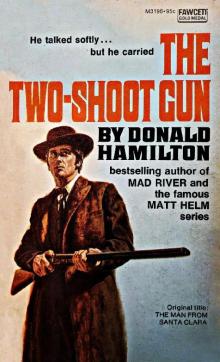 The Two-Shoot Gun
The Two-Shoot Gun Mad River
Mad River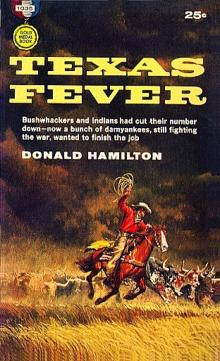 Texas Fever
Texas Fever Ambush at Blanco Canyon
Ambush at Blanco Canyon The Big Country
The Big Country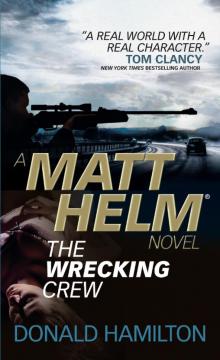 The Wrecking Crew
The Wrecking Crew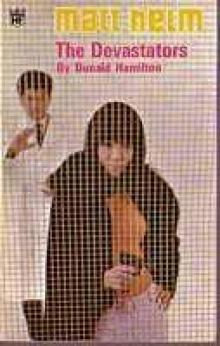 The Devastators mh-9
The Devastators mh-9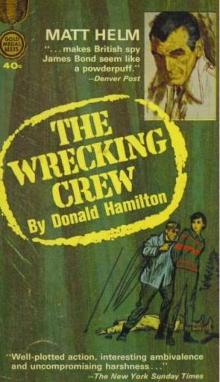 The Wrecking Crew mh-2
The Wrecking Crew mh-2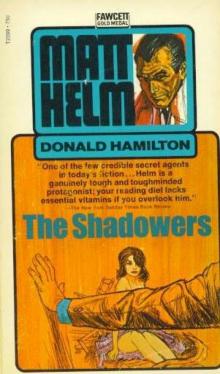 The Shadowers mh-7
The Shadowers mh-7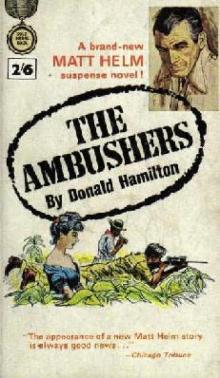 The Ambushers mh-6
The Ambushers mh-6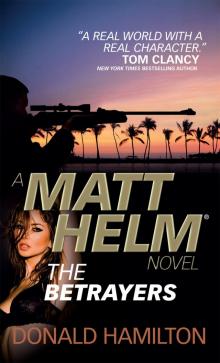 The Betrayers
The Betrayers The Terrorizers
The Terrorizers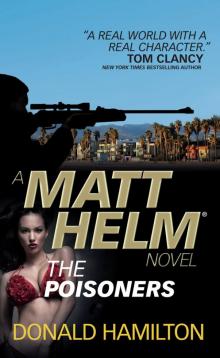 The Poisoners
The Poisoners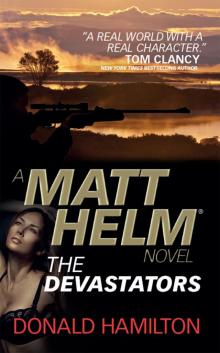 The Devastators
The Devastators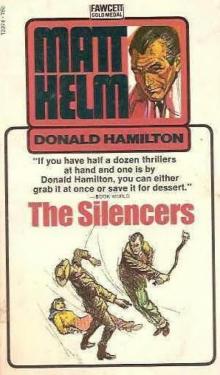 The Silencers mh-5
The Silencers mh-5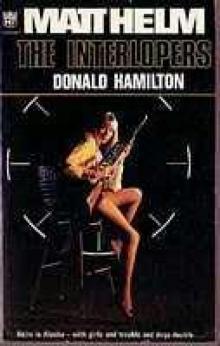 The Interlopers mh-12
The Interlopers mh-12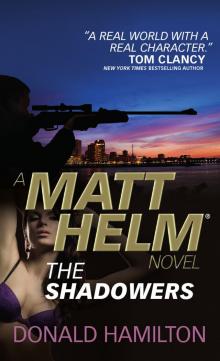 The Shadowers
The Shadowers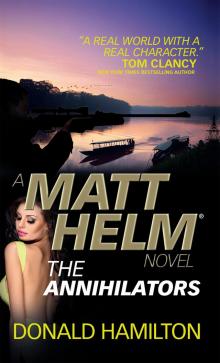 The Annihilators
The Annihilators The Vanishers
The Vanishers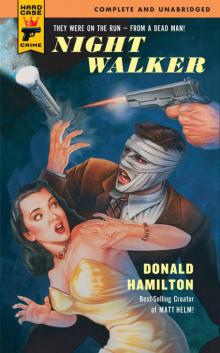 Night Walker
Night Walker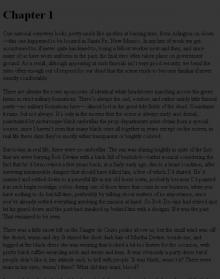 The Revengers
The Revengers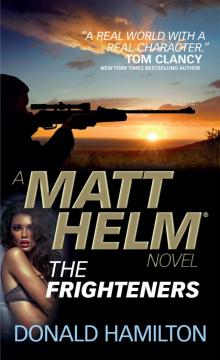 The Frighteners
The Frighteners The Infiltrators
The Infiltrators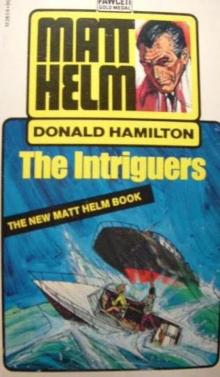 The Intriguers mh-14
The Intriguers mh-14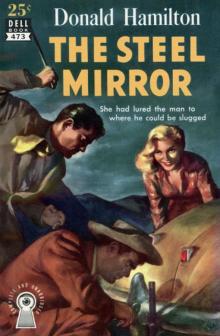 The Steel Mirror
The Steel Mirror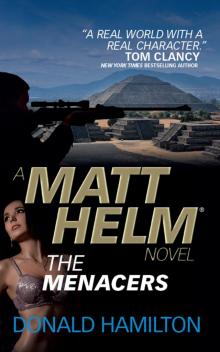 The Menacers
The Menacers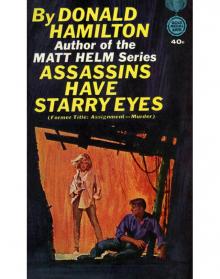 Assassins Have Starry Eyes
Assassins Have Starry Eyes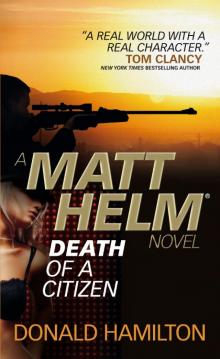 Death of a Citizen
Death of a Citizen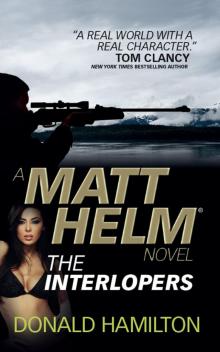 Matt Helm--The Interlopers
Matt Helm--The Interlopers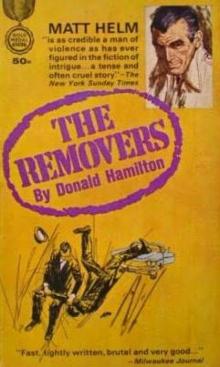 The Removers mh-3
The Removers mh-3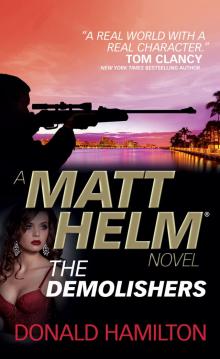 The Demolishers
The Demolishers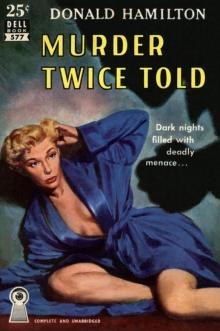 Murder Twice Told
Murder Twice Told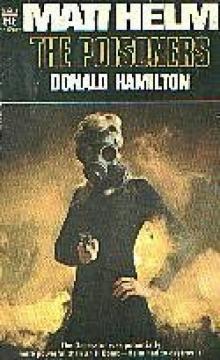 The Poisoners mh-13
The Poisoners mh-13 The Ambushers
The Ambushers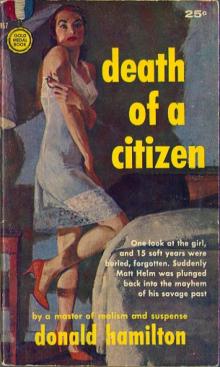 Death of a Citizen mh-1
Death of a Citizen mh-1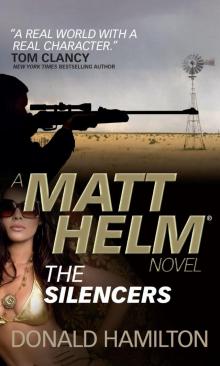 The Silencers
The Silencers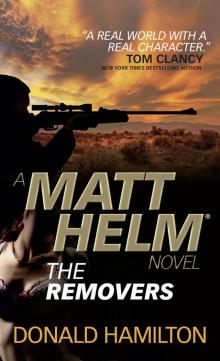 The Removers
The Removers The Intimidators
The Intimidators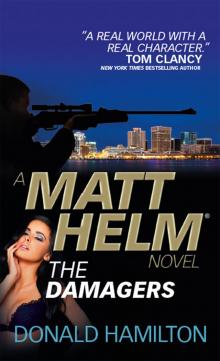 The Damagers
The Damagers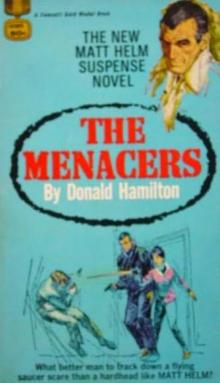 The Menacers mh-11
The Menacers mh-11 The Retaliators
The Retaliators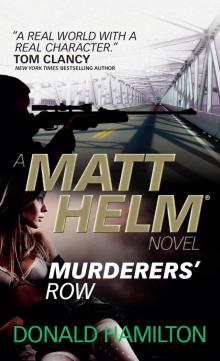 Murderers' Row
Murderers' Row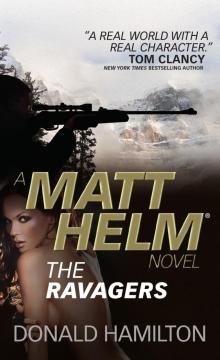 The Ravagers
The Ravagers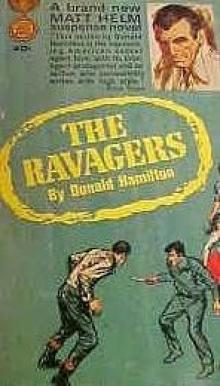 The Ravagers mh-8
The Ravagers mh-8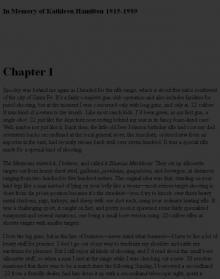 The Threateners
The Threateners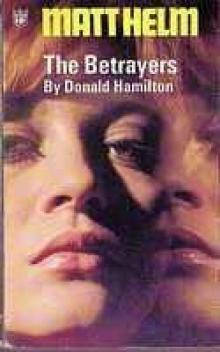 The Betrayers mh-10
The Betrayers mh-10